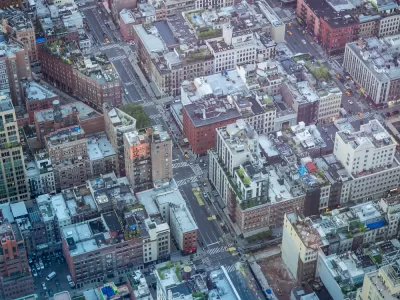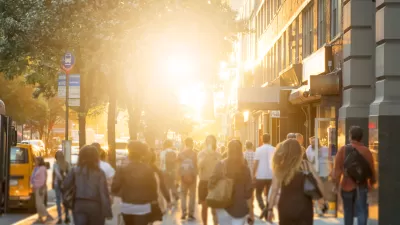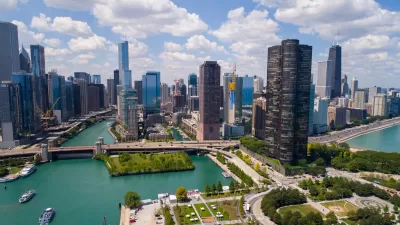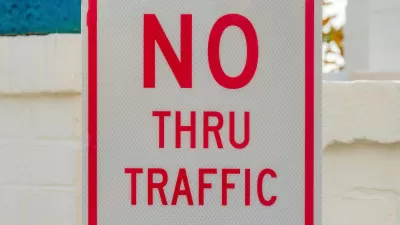Paul Krugman argues that the pervasive myth of cities as crime-ridden cesspools harms democracy and creates a false contrast between urban and small-town America.

In an op-ed for the New York Times, Paul Krugman assesses the "durable myth" that American cities teem with crime, violence, and disease. "Why do so many politicians still believe that they can run on the supposed contrast between urban evil and small-town virtue when many social indicators look worse in the heartland than in the big coastal metropolitan areas?," he asks. In fact, the country's "biggest social problems are in the 'eastern heartland,' an arc running from Louisiana to Michigan. This is where an alarmingly large number of men in their prime working years don’t have jobs and where 'deaths of despair' — that is, deaths from alcohol, suicide and drug overdoses — are running high."
These problems, Krugman writes, have economic causes: "The rise of a knowledge economy has led to a growing concentration of jobs and wealth in large, highly educated metropolitan areas, leaving much of small-town and rural America stranded. And this loss of opportunity has ended up being reflected in social disintegration, just as the disappearance of jobs did in many inner cities half a century ago." And while the Trump administration downplayed the impact of COVID-19 partly because it was seen as an urban problem, the numbers don't bear that out: "South Dakota has roughly the same population as San Francisco; it has had four times as many Covid deaths."
Krugman also questions misconceptions about who pays for federally funded assistance programs. "For example, do red-state voters know that federal spending in their states — much of it taking the form of benefits from Social Security and Medicare — greatly exceeds the taxes they pay to Washington?" Cynical politicians, he writes, "disparage some parts of the country and suggest that those regions aren’t part of the 'real America'" with often disastrous results. "Cynicism has effectively killed thousands of people in the pandemic — and it could, all too easily, end up killing democracy."
FULL STORY: The Durable Myth of Urban Hellholes

Alabama: Trump Terminates Settlements for Black Communities Harmed By Raw Sewage
Trump deemed the landmark civil rights agreement “illegal DEI and environmental justice policy.”

Planetizen Federal Action Tracker
A weekly monitor of how Trump’s orders and actions are impacting planners and planning in America.

Why Should We Subsidize Public Transportation?
Many public transit agencies face financial stress due to rising costs, declining fare revenue, and declining subsidies. Transit advocates must provide a strong business case for increasing public transit funding.

Understanding Road Diets
An explainer from Momentum highlights the advantages of reducing vehicle lanes in favor of more bike, transit, and pedestrian infrastructure.

New California Law Regulates Warehouse Pollution
A new law tightens building and emissions regulations for large distribution warehouses to mitigate air pollution and traffic in surrounding communities.

Phoenix Announces Opening Date for Light Rail Extension
The South Central extension will connect South Phoenix to downtown and other major hubs starting on June 7.
Urban Design for Planners 1: Software Tools
This six-course series explores essential urban design concepts using open source software and equips planners with the tools they need to participate fully in the urban design process.
Planning for Universal Design
Learn the tools for implementing Universal Design in planning regulations.
Caltrans
Smith Gee Studio
Institute for Housing and Urban Development Studies (IHS)
City of Grandview
Harvard GSD Executive Education
Toledo-Lucas County Plan Commissions
Salt Lake City
NYU Wagner Graduate School of Public Service





























